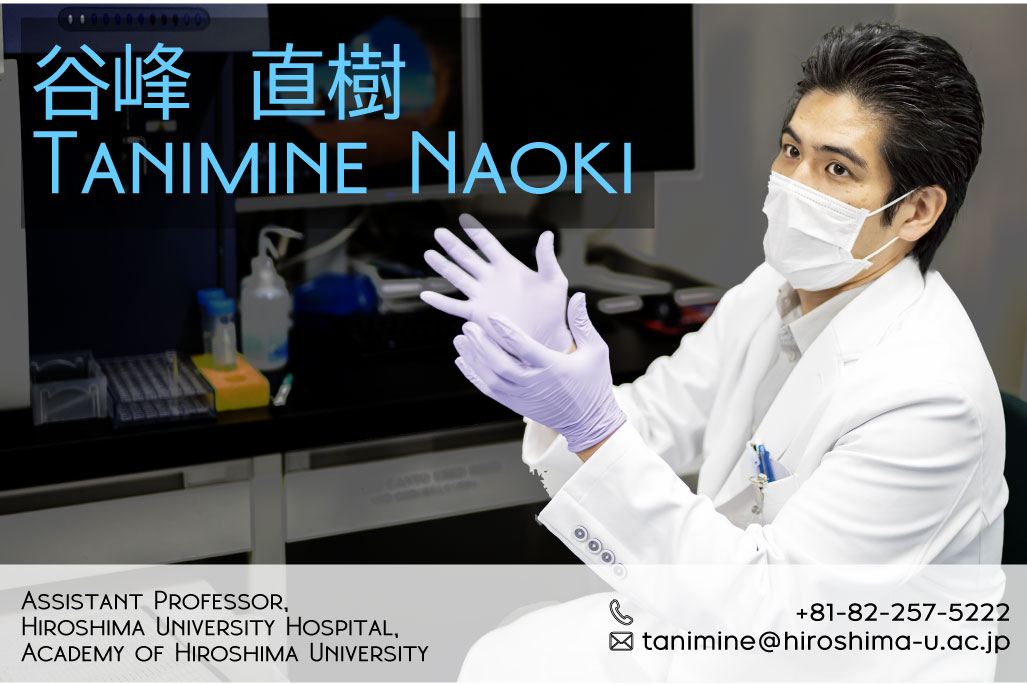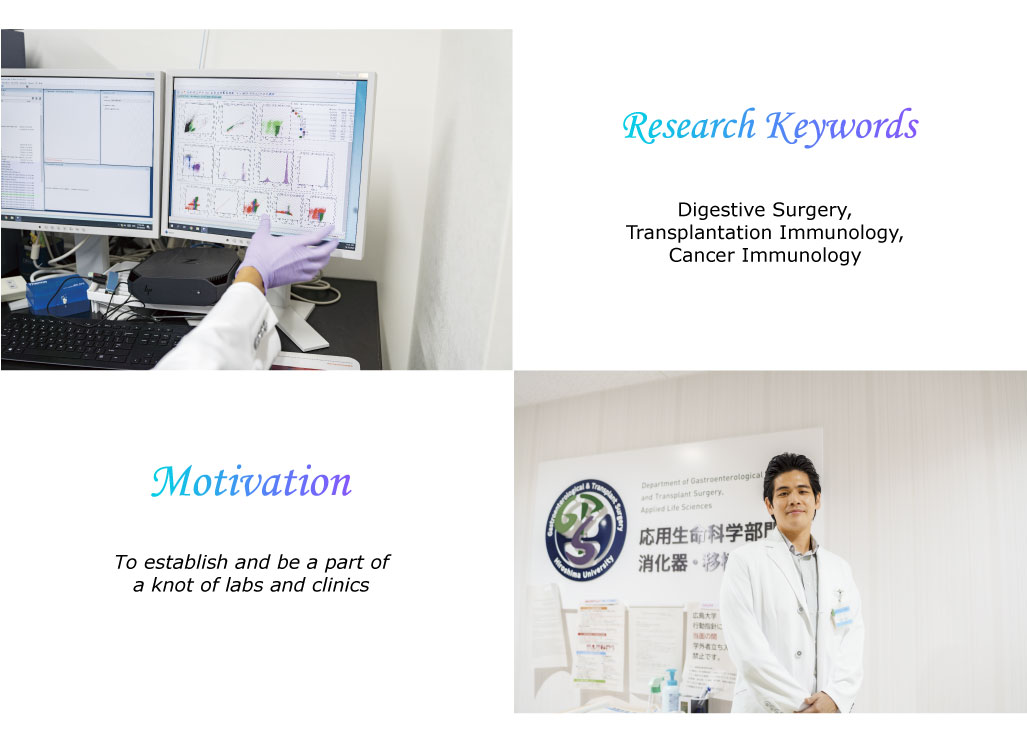

- Tanimine N, Germana SK, Fan M, Hippen K, Blazar BR, Markmann JF, Turka LA, Priyadharshini B, "Differential effect of 2-deoxy-D-glucose on tin vitro expanded human regulatory T cell subsets", PLOS ONE, 16(6), e0217761 (2019). DOI
- Tanimine N, Turka LA, Priyadharshini B, "Navigating T-Cell Immunometabolism in Transplantation", Transplantation, 102(2), 230-239 (2018). DOI
- Tanimine N, Tanaka Y, Kobayashi T, Tashiro H, Miki D, Imamura M, Aikata H, Tanaka J, Chayama K, Ohdan H, "Quantitative Effect of Natural Killer–Cell Licensing on Hepatocellular Carcinoma Recurrence after Curative Hepatectomy", Cancer Immunol Research, 2(12), 1142-1147 (2014). DOI
To view a more comprehensive list of publications, please click on the "researchmap" link below.
Raised in Hiroshima, Dr. Tanimine graduated from the School of Medicine at Hiroshima University. After working as a clinician for 6 years, he was admitted to the Graduate School of Biomedical and Health Sciences, Biomedical Science course in 2011. After graduating and working at the university hospital for a year, he went on to conduct research for three years at Harvard University’s Massachusetts General Hospital. Since returning to Japan in 2019, Dr. Tanimine has been working at his current post as Assistant Professor, and he splits his eventful days between clinical work and research.
Dramatic improvements have been made in the outcomes of organ transplants through progress in immunosuppressive drugs in recent years, but patients who undergo surgery need to take drugs for the rest of their lives which is an issue that needs to be overcome from a QOL (Quality of Life) aspect. Considering this situation, Assistant Professor Tanimine’s research theme is focused on immunotolerance being expected to be developed as the new form of treatment. Immune tolerance is the condition in which a transplanted organ is stable and does not cause an immunological reaction, even without the use of drugs; this line of research received the Nobel Prize for proving this phenomenon on animals 60 years ago. However, in clinical work, treatment that leads to immunotolerance has not yet been established. Therefore, the lab that Dr. Tanimine belongs to is continuously working on the immunological monitoring of transplant patients and is progressing with research that will contribute to establishing a new, effective treatment.

 Home
Home




